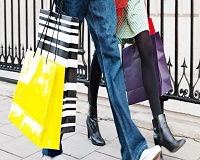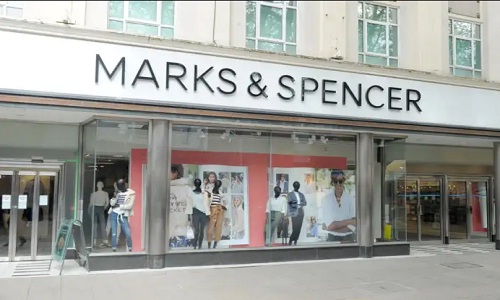"Consumers and government are increasingly focusing on the environmental impact of fashion across the globe. While last month’s BBC3 documentary Fashion’s Dirty Secrets exposed the industry’s failings to the public, the Environmental Audit Committee is conducting an inquiry into sustainability in fashion. Although many retailers implement sustainability policies, most business leaders still prioritise profits over responsible retailing. Many shoppers however, often choose a cheaper option over a more sustainable one."
 Consumers and government are increasingly focusing on the environmental impact of fashion across the globe. While last month’s BBC3 documentary Fashion’s Dirty Secrets exposed the industry’s failings to the public, the Environmental Audit Committee is conducting an inquiry into sustainability in fashion. Although many retailers implement sustainability policies, most business leaders still prioritise profits over responsible retailing. Many shoppers however, often choose a cheaper option over a more sustainable one.
Consumers and government are increasingly focusing on the environmental impact of fashion across the globe. While last month’s BBC3 documentary Fashion’s Dirty Secrets exposed the industry’s failings to the public, the Environmental Audit Committee is conducting an inquiry into sustainability in fashion. Although many retailers implement sustainability policies, most business leaders still prioritise profits over responsible retailing. Many shoppers however, often choose a cheaper option over a more sustainable one.
Although sustainability initiatives pose a temporary financial burden on companies, not implementing them pose greater financial risks. PR disasters such as the collapse of the Rana Plaza factory in Bangladesh in 2013, or government intervention, for instance, could suddenly ramp up costs or impact sales. Furthermore, there is the risk of being overtaken by competitors who have adopted sustainable principles, as consumers who are increasingly well informed and demanding choose more responsible brands.
Brands take up sustainability challenge
A consumer research study conducted by Mark & Spencer had revealed only 10 per cent consumers are likely to pay more for environmentally friendly products. A further 70 per cent of respondents adopted sustainability in some form, but expected the industry to absorb the cost.
pay more for environmentally friendly products. A further 70 per cent of respondents adopted sustainability in some form, but expected the industry to absorb the cost.
M&S’ has adopted a Plan A initiatives that includes sourcing all cotton from sustainable sources by April 2019, its shopping recycling partnership with Oxfam, and a focus on sustainable design as part of its Plan A 2025 commitments. The brand publishes a large amount of information on its website to underpin this trust, including the location of its factories for food and clothing, details on its second- and third-tier suppliers across the supply chain, the location of its dye houses and the raw materials used.
Another brand trying to become more sustainable, Pentland Brands believes retailers need to look beyond short-term margins. Speedo launched its new H2O Active range, which uses Econyl – a fabric made from recycling fishing nets and plastics into first-grade nylon.
Sustainability impacts consumer behavior
The new event, Drapers Sustainable Fashion, will bring together the most sustainable brands and retailers, trailblazers and unicorns, disruptors, progressive thinkers and pioneers to discuss what we can do and why change is not optional. Consumers may not choose sustainability due to the cost factor but the trend is impacting their behavior in different ways.
Retailers need to be more open about sustainability. By staying silent, brands risk being considered non-emphathetic. Oxfam saves around 7,200 tons of clothes from being dumped into landfill every year thanks to its waste saver processing plant. Similarly Burberry announced it would stop the practice of incinerating unsold clothing and accessories to protect the brand and prevent them from being sold cheaply.
No sustainability regulation in place
Besides the Modern Slavery Act, there is currently no sustainability legislation in fashion. The government’s options for regulation include a French-style “duty of vigilance” law, a ban on textile incineration, higher taxes for use of virgin materials, and levies based on the amount of waste produced. The British Retail Consortium (BRC) is also concerned about lack of enforcement. It believes the practice of unscrupulous suppliers paying textile workers in the UK below minimum wage is going unchecked, and is lobbying for action.
Companies, who do not act until the government compels them to, face greater risks. So the time to act is now whether it is the PR, consumers or the regulation.












